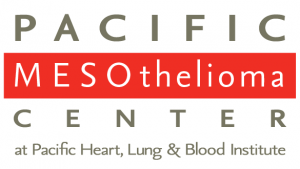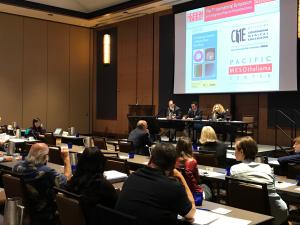Latest Breakthroughs In Mesothelioma Research Are Discussed At the 7th Symposium on Malignant Mesothelioma at UCLA
The Symposium Draws a Distinguished Panel of Researchers and Clinicians to UCLA to Discuss the Latest Breakthroughs in Prevention, Detection, and Treatment.
LOS ANGELES, CA, UNITED STATES, October 4, 2017 /EINPresswire.com/ -- The 7th International Symposium on Malignant Pleural Mesothelioma was held on Saturday, September 30th, at the UCLA Meyer & Renee Luskin Conference Center. The focal point of the symposium was on clinical therapies and research data to prevent, detect and treat malignant pleural mesothelioma. Healthcare professionals including physicians, nurses, and scientists joined students, mesothelioma patients, and their families to attend this informative and educational conference.The Symposium was co-hosted by UCLA and the Pacific Mesothelioma Center (PMC).The morning session was opened by symposium chair, Dr. Robert B. Cameron, MD, FACS, who discussed The future of mesothelioma surgery.“Although surgery in mesothelioma has decreased due to a perceived lack of efficacy among oncologists and other physicians, there are therapies, such as preoperative radiation, cryoablation, and Betadine lavage, which are keeping surgical results ahead of other therapies,” said Dr. Cameron, Professor of Clinical Cardiothoracic Surgery and Surgical Oncology. The highlights of his presentation centered on how these therapies supplemented standard of care treatments through preoperative, intraoperative, and postoperative therapeutic modalities. Dr. Cameron is a pioneer in the field of mesothelioma, Director of the Comprehensive Mesothelioma Program at UCLA, Senior Professor of Surgery at UCLA, and Chief of Thoracic Surgery at the West Los Angeles Veterans Affairs Medical Center.
“This year has been incredibly hopeful as there are new biological advances, such as immunotherapy, anti-angiogenic therapy, and others, that are likely to lead to improved treatments in the future,” said Dr. Cameron. Immunotherapy is advancing rapidly and many other therapies, such as thermal, chemical, gene and cell-based therapies are on the horizon”.
Additional presentation topics included Immune Checkpoint Blockade in MPM; Recent Findings of Mesothelioma and BAP1; Intracavitary Therapeutics for MPM; Disabling Mitochondrial Peroxide Metabolism as an Effective Therapeutic Approach to MPM; Targeting the Epigenome in MPM; Engineering Mesenchymal Stem Cells for Immunotherapy of MPM; Inflammasome Modulation by Chemotherapeutics in MPM; The Benefits of a Mesothelioma Caregiver Support Group and Resources for Research – the Student Internship Program.
The symposium’s other distinguished faculty included: Anna Nowak, PhD of the University of Western Australia; Luana Calabrò, MD, University Hospital of Sienna, Italy; David S. Schrump, MD, National Cancer Institute, Maryland; Jacques P. Fontaine, MD, Moffitt Cancer Center, Tampa; Brian Cunniff, PhD, University of Vermont; Haining Yang, MD, PhD, University of Hawaii; Arti Shukla, PhD, University of Vermont; Olga Olevsky, MD, UCLA; Lien Hua-Feng NP, UCLA/VA/PHLBI and Clare Cameron, Executive Director of the PHLBI.
The symposium was supported by: Worthington & Caron PC, The International Association of Heat & Frost Insulators, and Waters Kraus & Paul.
About the PMC: Established in 2002, the Pacific Heart, Lung & Blood Institute (PHBI) is a 501(c) (3) non-profit institution. The Pacific Mesothelioma Center (PMC), a division of the PHLBI, is focused on the treatment and prevention of malignant pleural mesothelioma, a rare form of cancer caused by asbestos exposure. The PMC serves a growing number of mesothelioma victims by supporting the nation’s first-of-its-kind research lab which provides laboratory-to-the-bedside research that improves mesothelioma victims’ lives and longevity. www.pacificmesotheliomacenter.org.
Clare Cameron
The Pacific Heart, Lung & Blood Ins
3104784678
email us here



